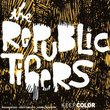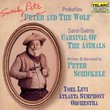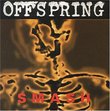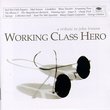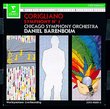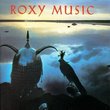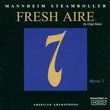| All Artists: Charles Tomlinson Griffes, JoAnn Falletta, Buffalo Philharmonic Orchestra, Barbara Quintiliani Title: Charles Griffes: The Pleasure Dome of Kubla Khan/The White Peacock/Three Poems of Fiona McLeod Members Wishing: 0 Total Copies: 0 Label: Naxos American Release Date: 4/20/2004 Genres: Pop, Classical Styles: Vocal Pop, Chamber Music, Forms & Genres, Concertos, Theatrical, Incidental & Program Music, Historical Periods, Modern, 20th, & 21st Century, Instruments, Reeds & Winds, Symphonies Number of Discs: 1 SwapaCD Credits: 1 UPC: 636943916421 |
Search - Charles Tomlinson Griffes, JoAnn Falletta, Buffalo Philharmonic Orchestra :: Charles Griffes: The Pleasure Dome of Kubla Khan/The White Peacock/Three Poems of Fiona McLeod
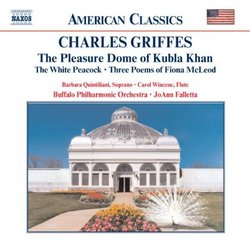 | Charles Tomlinson Griffes, JoAnn Falletta, Buffalo Philharmonic Orchestra Charles Griffes: The Pleasure Dome of Kubla Khan/The White Peacock/Three Poems of Fiona McLeod Genres: Pop, Classical
During his brief life (cut short by pneumonia when he was just 35), Charles Griffes was able to compose music of distinctive beauty. He was fascinated by the music of the French-Impressionist composers Debussy and Ravel bu... more » |
Larger Image |
CD DetailsSynopsis
Album Description During his brief life (cut short by pneumonia when he was just 35), Charles Griffes was able to compose music of distinctive beauty. He was fascinated by the music of the French-Impressionist composers Debussy and Ravel but was also influenced by the Russian sounds of Scriabin and Mussorgsky and a German post-romantic idiom. Ultimately, Griffes found his own unique voice that blended all of these characteristics. Griffes had a passion for verse and almost all of his orchestral scores are linked in some way to poetic or literary ideas. The works on this disc are notable examples of Griffes? "tone pictures" with the exception of the Poem for Flute and Orchestra, a miniature tone poem without associated text or images. Similarly Requested CDs
|
CD ReviewsJoAnn Falletta, BuffaloPO: Charles Tomlinson Griffes: Orches Dan Fee | Berkeley, CA USA | 06/24/2009 (5 out of 5 stars) "Anybody who was paying attention probably sat up and took notice when Naxos released the Buffalo Philharmonic (USA, New York State) doing Copland. Not only did that disc have very full frequency, realistic sound; the band was playing as well or better than we might have credited. Music Director JoAnn Falletta is one of the more under-appreciated but keenly gifted conductors now working among us - from the sounds of the Copland disc, and now this one, she is ready for the Big Time, Big Time.
This composer is probably best known to piano students, who end up being assigned at least one or two of his solo piano works - teaching vehicles, and music, all at once. The orchestra music here is a combination of Griffes' orchestrating some of his solo piano pieces, along with other short pieces. We get three settings of poems by Fiona McLeod, sung very nicely by soprano Barbara Quintilliani, orchestrated by M. Dressler. We get a Poem, featuring solo flute, also beautifully floated by Carol Wincenc. One nice thing about this disc is the wisely planned sequencing of its music. We start off with Griffes' orchestration of his piano piece, White Peacock. Then the three songs. Then an energetic Bacchanale, shimmering with tonal colors, and tricky-sounding cross-rhythms. Then Clouds, another work that started life as a solo piano piece. Then three tone pictures - titled, respectively, (1) The lake at evening, (2) The vale of dreams, (3) The night winds. Followed by the flute solo Poem. And an orchestral setting of The Pleasure Dome of Kubla Khan wraps the disc. On first hearing, this music may sound like ersatz Debussy with imitative touches of Ravel-ian finesse and glitter in its orchestrations. Slavic musical influences pass through, reminding us of Rimsky-Korsakov; Griffes had a way with his melodies and harmonies that may spike the punch with Scriabin, too. And others. Repeat listening will likely reveal the musical point, which is that Griffes really found his own special American voice, despite all his influences. Griffes died young, and that doesn't necessarily help him lobby for a greater exposure in our concert halls. (I also suspect, based on this disc, that Griffes is not all that easy to play, so the big bands neglect him in favor of Debussy or Ravel or whomever is better known, and the regional bands may find him too difficult to put over in their own halls.) If composers like MacDowell helped bring German lights to the new world shores, surely Griffes helped elucidate what French discoveries might sound like in the new world. We don't fault Dvorak for writing that last, New World symphony? Nor do we fault Respighi for bringing RK to Italian shores. If we do not fault Ravel for writing at the same time as Debussy, why fault Griffes? So thanks to all who made this disc possible. We are done a good service, and Griffes makes his long overdue marks. He's not just for piano students any more. Yes, Griffes is still offbeat. He's not as populist and big city as Gershwin, or even Charles Ives. Griffes' sound is rather like so much of USA - offbeat, conglomerate, mongrel-mix - perhaps crucially and fatally shaped, as that historian said, by always facing new frontiers. As a pioneer, then, Griffes meets the musical and cultural marks. We're not in Europe any more, Toto. Five stars. Hope we get to hear much more of JoAnn Falletta and Buffalo. Spinning this disc, I found myself thinking we should hear them doing Sibelius, for some reason. Or let's get really gnarly, and do a complete set of the Roger Sessions symphonies?" |

 Track Listings (11) - Disc #1
Track Listings (11) - Disc #1

